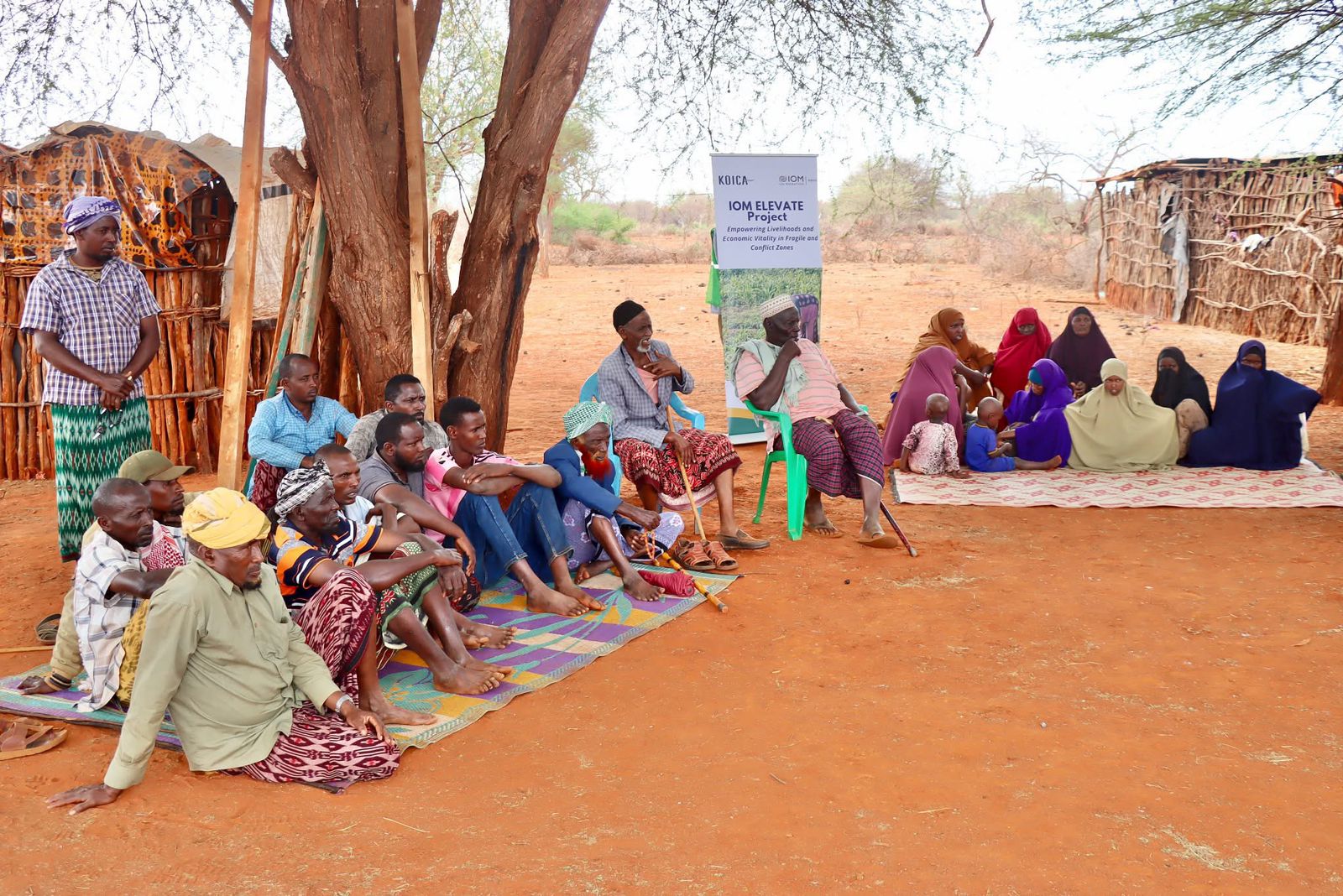A five-day Peace Caravan has restored hope and trust between the Garre and Degodia communities in Mandera County, rekindling dialogue and cooperation after months of deadly inter-clan clashes.
The caravan, part of the ELEVATE Project implemented by Rural Agency for Community Development and Assistance (RACIDA) with support from the International Organisation for Migration (IOM) and the Korea International Cooperation Agency (KOICA), traversed conflict-prone areas to promote reconciliation and lasting peace.
For years, Mandera has been the epicentre of inter-clan conflicts triggered by disputes over grazing land, water points, and political representation.
The violence has claimed lives, displaced families, and left homes, schools, and grazing fields in ruins.
Through the ELEVATE initiative, elders, religious leaders, youth representatives, and government administrators came together in a symbolic journey of peace.
The caravan’s mission was to share resolutions from recent peace dialogues, strengthen ceasefire commitments, and form local conflict-monitoring committees.
Speaking during a stop in Mandera West, one of the areas hardest hit by the clashes, Garre elder Yunis Sheikh described the scale of destruction as heartbreaking.
“It is sad to see that people who once coexisted peacefully no longer trust each other. Homes and schools now stand empty; they’ve become shelters for wildlife. This initiative seeks to rebuild trust, foster dialogue, and promote lasting peace for a more united and secure future,” he said.
Sheikh urged residents to embrace peace, emphasising that Islam values life and neighbourliness.
“Peace is paramount in any setup. Without it, everything else comes to a standstill. We must all do everything possible to safeguard it. We cannot keep burying our young men and watching our children grow up in fear,” he added.
At Qorodhobo villages one and two, the caravan witnessed the aftermath of violence, abandoned settlements, and idle farmlands deserted seven months ago.
Community representatives, including Mohamed Haji Dahir from the Degodia clan, appealed to the government and humanitarian organisations for assistance in resettling displaced families and reviving stalled development projects.
“We appeal to the government and humanitarian organisations to assist in resettling displaced families. Our MPs should also complete the projects that were abandoned during the conflict,” Dahir said.
Youth leader Mohamed Hussein commended the initiative for its community-driven approach, noting that sustainable peace must be rooted in local ownership.
“These elders carry moral authority and command respect among their clans. Involving them ensures the process remains grounded in community values,” he said.
The National Cohesion and Integration Commission (NCIC) also supported the peace efforts, aligning with its broader “bottom-up” approach that empowers local leaders and communities to mediate and resolve conflicts independently.
As the Peace Caravan concluded its mission, residents expressed renewed optimism that dialogue and collaboration would replace fear and division.

